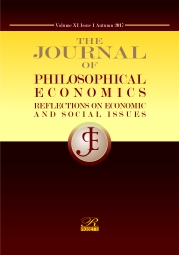Collective beliefs and horizontal interactions between groups: the case of political parties
Collective beliefs and horizontal interactions between groups: the case of political parties
Author(s): Olivier OuzilouSubject(s): Philosophy, Social Sciences, Economy, Special Branches of Philosophy, Sociology, Philosophy of Science, Social Theory, Socio-Economic Research
Published by: Editura Rosetti International
Keywords: collective beliefs; epistemic rationality; groups; ideological commitment; political party; social interactions; transversal themes
Summary/Abstract: Groups matter in our ordinary folk psychology because a part of our social interactions is done with collective entities. In our everyday life, we indeed sometimes ascribe mental states to social groups as a whole or to individuals as members of groups in order to understand and predict their behavior. The aim of this paper is to explore this aspect of social interactions by focusing on the concept of ‘collective belief’ in a non-summative sense and, more precisely, on collective belief of a specific kind of group: the political party. How can the concept of ‘collective belief’ help to understand the interactions which involve these kinds of collective entities? After providing an epistemic description of political parties, this paper focuses on the collective belief in a non-summative sense. As Gilbert says, a group believes that p, if its members are jointly committed to believe that p as a body. It is argued, with the help of an example from the political history of France, that this view can enable us to understand the interaction between political parties. More precisely, it can help clarify the way in which a political party use the rational constraints on the party as a whole and/or the social and epistemic constraints on the behavior of the group's members in order to destabilize or weaken other political parties.
Journal: Journal of Philosophical Economics
- Issue Year: VIII/2015
- Issue No: 2
- Page Range: 7-21
- Page Count: 15
- Language: English

